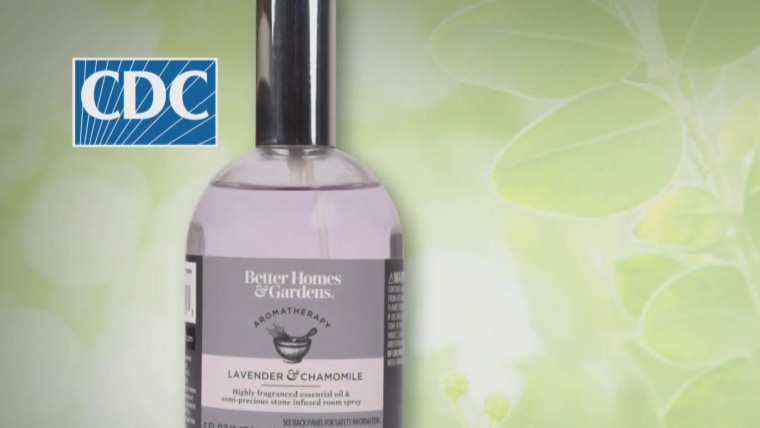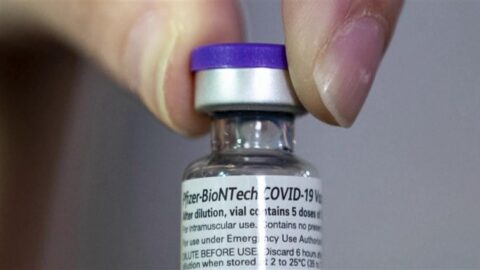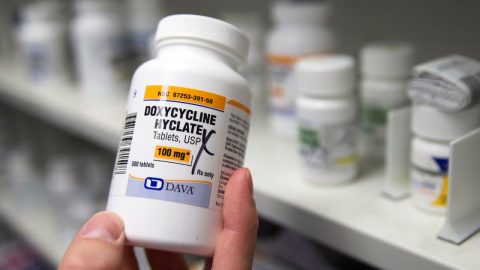On July 12, a 5-year-old boy in Georgia arrived at an emergency department following several days of sickness. He’d been vomiting, was weak and had a sore throat. His heart rate was unusually fast. His fever spiked to more than 102 degrees.
Doctors admitted the child to the hospital to keep an eye on him and help keep him properly hydrated. That night, his breathing became labored, and he tested positive for Covid-19.
Doctors immediately started a typical treatment for the infection, including steroids and an antiviral drug called remdesivir.
He did not get better. Within four days of hospitalization, he died.
An autopsy later detected the coronavirus in his lungs and upper airways. But it also showed something surprising: bacteria called Burkholderia pseudomallei in the boy’s lungs, liver, spleen and brain.
That finding would eventually lead investigators to solve three other cases of Burkholderia pseudomallei infection that occurred earlier in the year in three different states. Details of all four cases were published Wednesday in the New England Journal of Medicine.
Solving a microscopic mystery
The bacteria Burkholderia pseudomallei are almost never found in the United States; rather, they’re generally found in contaminated soil or water in parts of South and Southeast Asia.
But the boy’s family said they had not traveled outside of the country. Samples taken from the family’s water supply and soil outside the home turned up nothing.
Burkholderia pseudomallei can also be aerosolized and inhaled, so investigators tested products inside the boy’s home.
It was an “arduous investigation,” said study co-author Julia Petras, an epidemic intelligence service officer with the Centers for Disease Control and Prevention. Over the course of several months, investigators took dozens of samples from products in the boy’s home, she said.
Three months later, in October, investigators discovered the bacteria in an aromatherapy room spray in the house. The product, the lavender and chamomile scent of Better Homes & Gardens Essential Oil Infused Aromatherapy Room Spray With Gemstones, had been imported from India and sold at 55 Walmart stores, as well as on Walmart’s website.
“When we first got the confirmation, it came as a huge relief to us,” Petras said.
The discovery of the bacteria in the aromatherapy product helped investigators solve the three other cases of Burkholderia pseudomallei infection that had occurred earlier in the year. Each of those patients were found to have the same specific strain of the bacteria found in the spray bottle, suggesting they had also used the contaminated product.
The cases were first made public in October, when the CDC issued an alert about the aromatherapy spray and the Consumer Product Safety Commission announced that Walmart was recalling nearly 4,000 bottles of the product, as well as five other scents under the same product name: lemon and mandarin; lavender; peppermint; lime and eucalyptus; and sandalwood and vanilla.
A difficult diagnosis
Burkholderia pseudomallei cause an illness called melioidosis. It’s treatable with certain intravenous antibiotics if caught early.
But because the bacteria are so rare in the U.S., signs of melioidosis can be mistaken for other respiratory illnesses, such as the flu, Covid or even tuberculosis.
All four patients whose cases are detailed in the new report initially had a wide range of vague symptoms, such as fatigue, shortness of breath, fever and nausea.
One case involved a 4-year-old girl in Texas whose family sought medical attention for her several times after she’d been vomiting and had a fever of more than 103 degrees. Investigators later confirmed her family had the aromatherapy spray product in the house.
Doctors thought perhaps the girl had a urinary tract infection and put her on a variety of antibiotics. Within days, she was hospitalized with septic shock, which causes dangerously low blood pressure and organs to shut down.
The girl survived. But three months after leaving the hospital, the girl still needed to use a wheelchair and was nonverbal, the study authors wrote.
The families of both the young girl and the boy told investigators that they had sometimes used the spray on pillows and bedding, Petras said.
The other two patients were adults, both 53 years old. A man living in Minnesota went into the hospital with weakness and confusion. His fever later soared to 104 degrees, and he had severe pain in one of his hips.
He was later discharged, but his mental status had not improved at that time.
And a woman in Kansas who was hospitalized with breathing problems and weakness later went into septic shock. She died nine days later.
Melioidosis can occur through normal use of contaminated air fresheners and other room sprays, said Dr. Jill Weatherhead, an assistant professor of tropical medicine and infectious diseases at the Baylor College of Medicine in Houston.
“We know you can get this infection through inhalation into the lungs,” Weatherhead, who was not involved in the CDC investigation, said. “Unfortunately in this case, the bacteria was already being aerosolized. If you breathe that in, it will cause disease.”
Follow NBC HEALTH on Twitter & Facebook.










Recent Comments